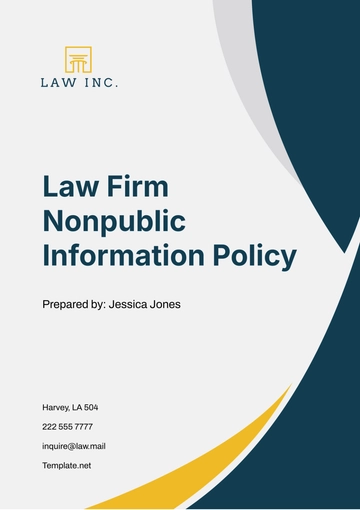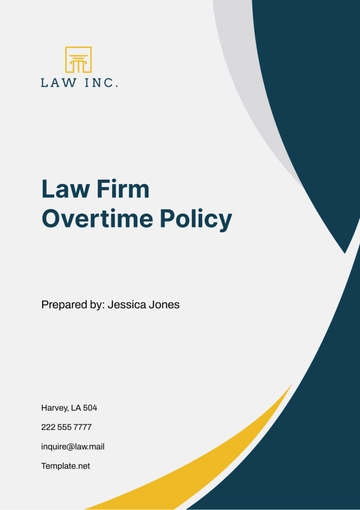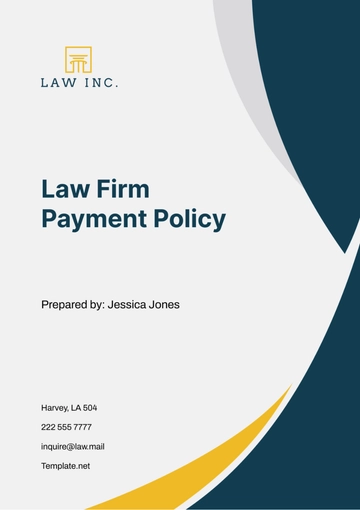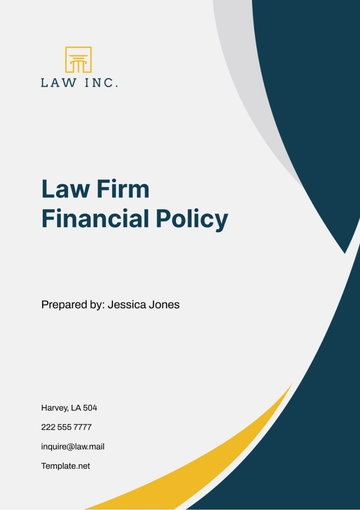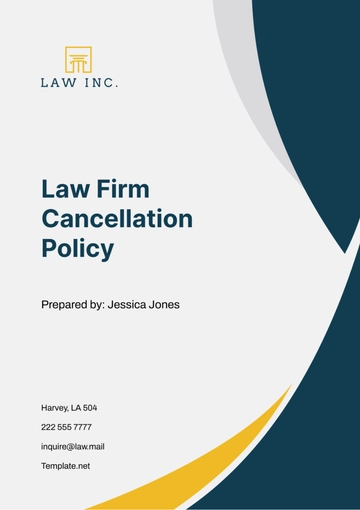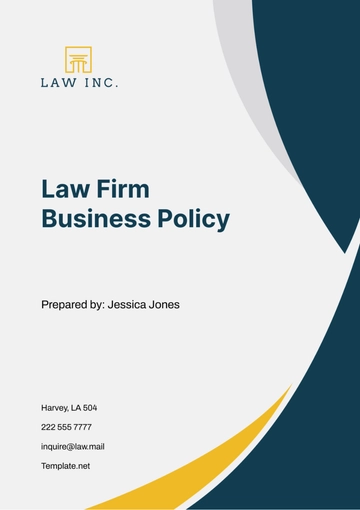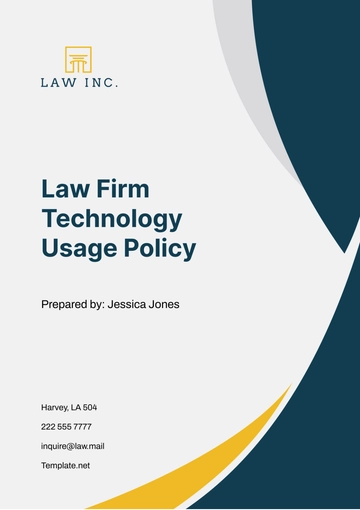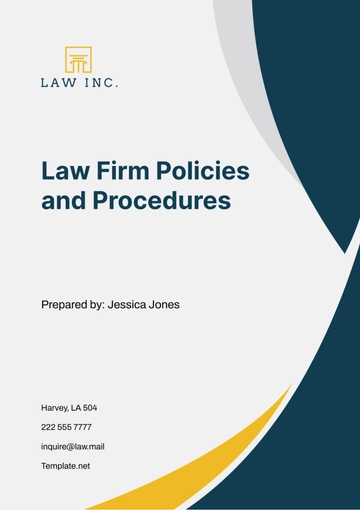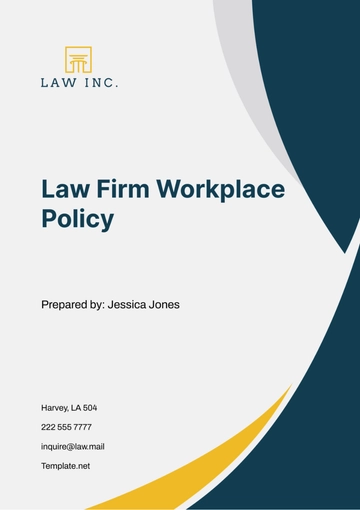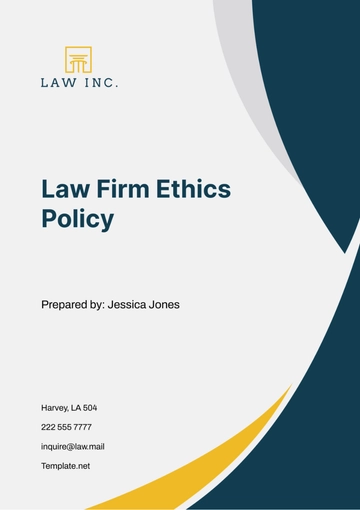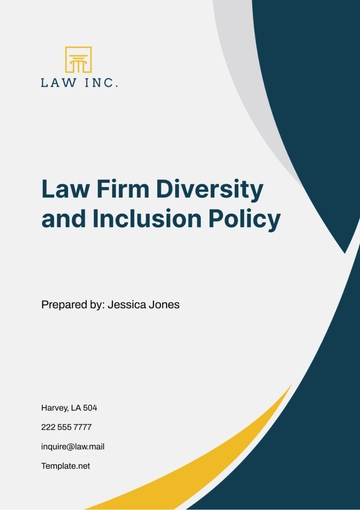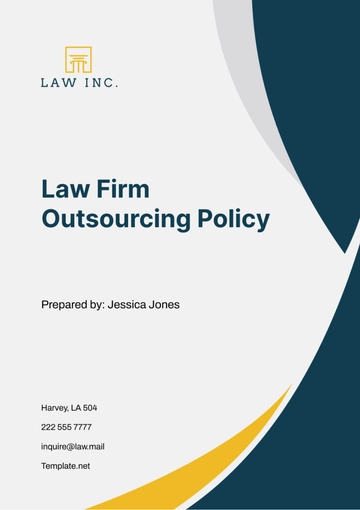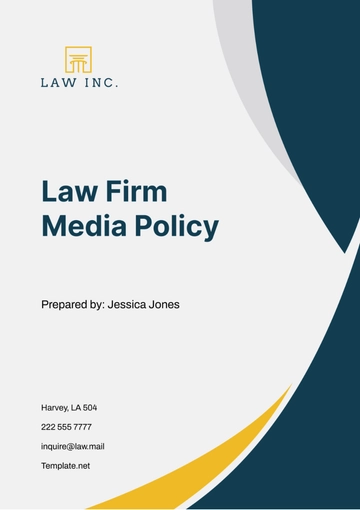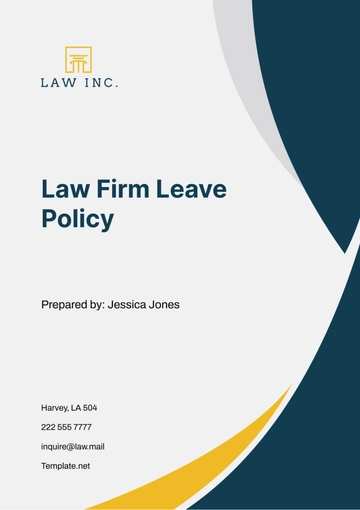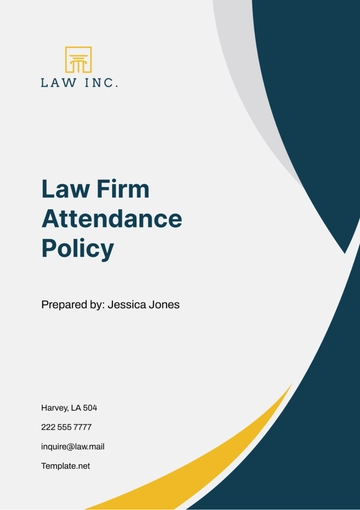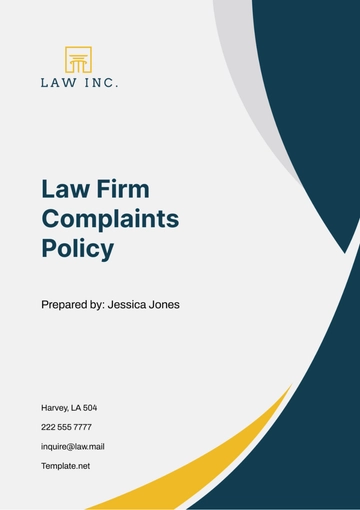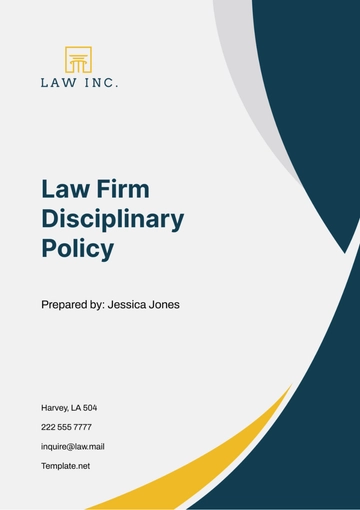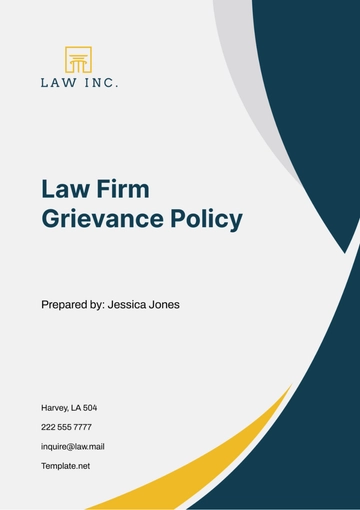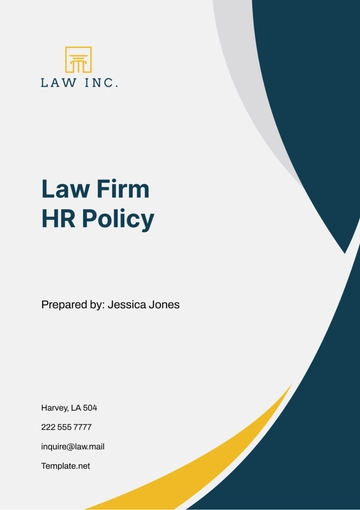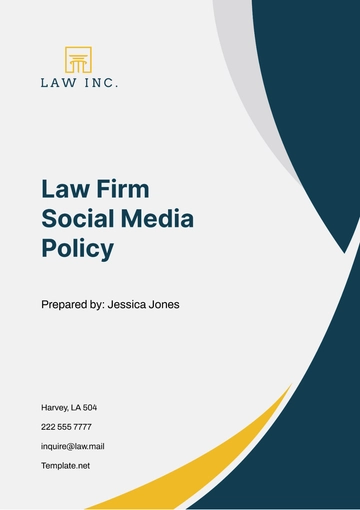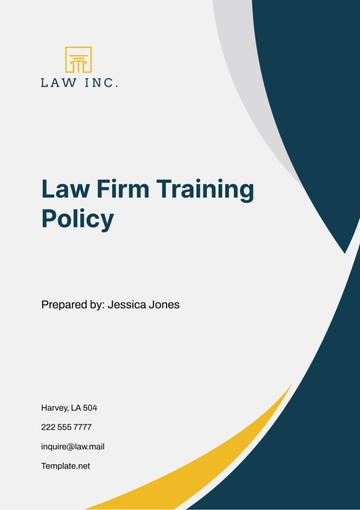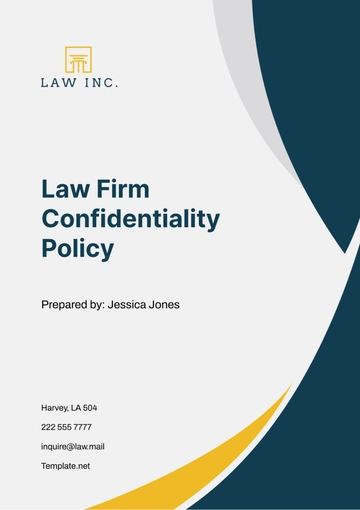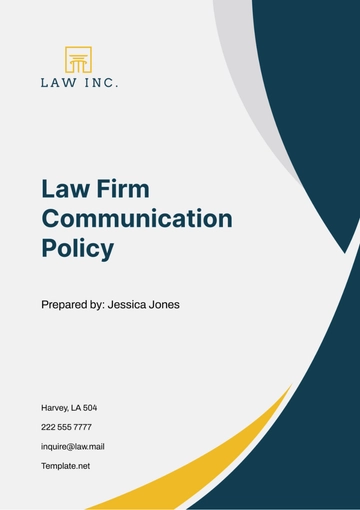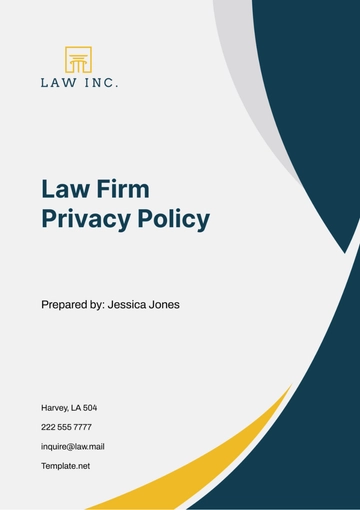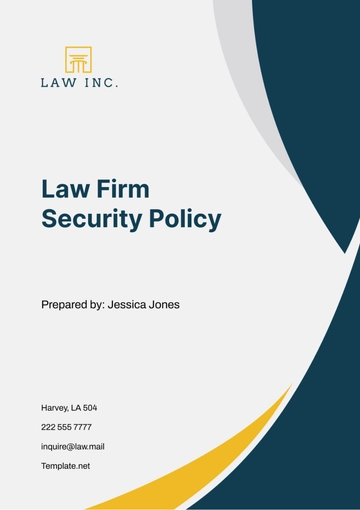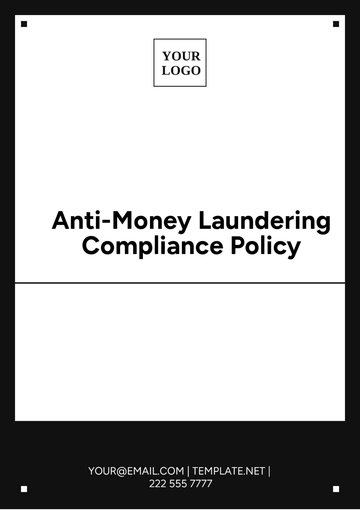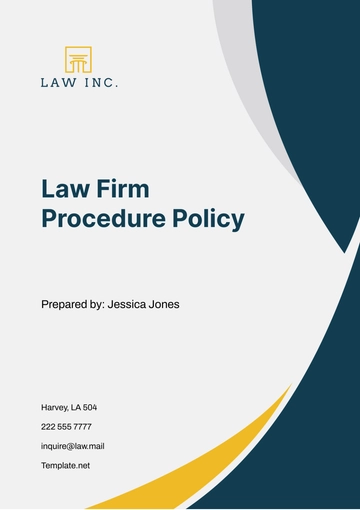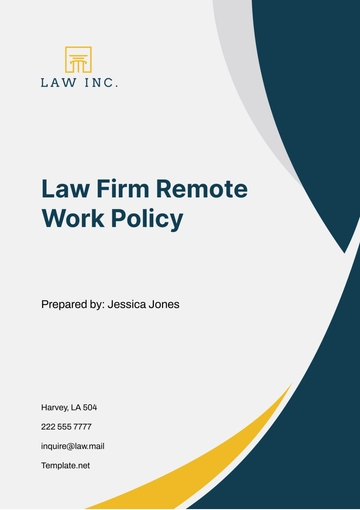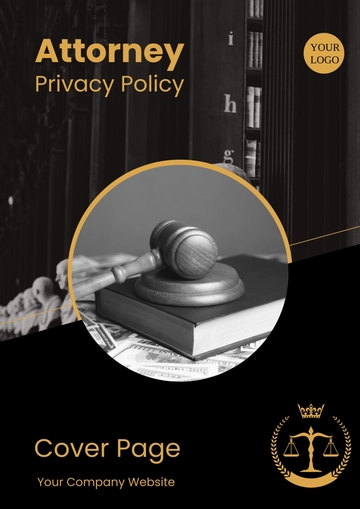Free Law Firm Training Policy
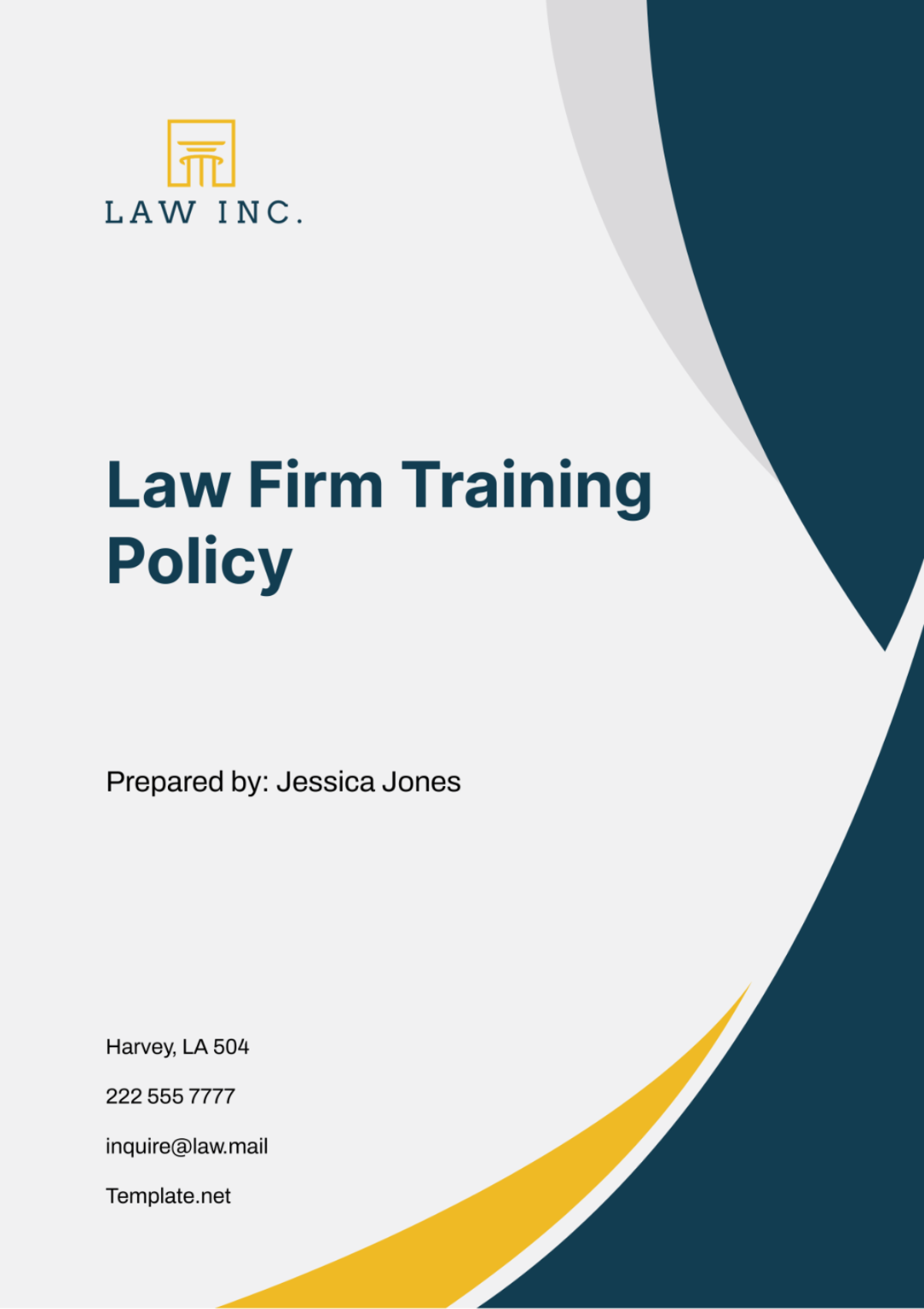
Effective Date: [Date]
1. Purpose
The primary objective of this Law Firm Training Policy is to ensure that all employees at [Your Company Name], from entry-level to senior partners, are equipped with the latest legal knowledge and skills necessary to excel in their respective roles. This comprehensive approach to professional development is designed not only to enhance individual capabilities but also to uphold and surpass the legal service standards our clients expect. By fostering an environment that values ongoing learning and ethical practice, we aim to maintain our reputation as a leading law firm and ensure our adaptability in a rapidly changing legal landscape. This policy supports not only career growth but also encourages a proactive approach to understanding and implementing new legal regulations and technologies, thereby safeguarding our firm's compliance with industry standards and legal requirements.
2. Scope
This policy is comprehensive and mandatory, encompassing all personnel within [Your Company Name] including partners, associates, paralegals, and administrative staff. Adherence to the training requirements outlined herein ensures that every team member can perform their duties with a high degree of professionalism and ethical integrity. By standardizing our approach to training, we guarantee that all employees receive equitable opportunities for professional growth, which in turn enhances the overall quality of legal services we provide. Uniformity in training also facilitates a more cohesive and informed workforce, capable of collectively advancing our firm’s goals and maintaining our commitment to excellence in all aspects of legal practice.
3. Training Requirements
Training at [Your Company Name] is tailored to meet the diverse needs of our varied roles, reflecting the specific responsibilities and expectations of each employee category while promoting a deep understanding of legal practices and client service excellence.
Partners and Associates: Are required to complete a minimum of 20 hours of Continuing Legal Education (CLE) annually. This training focuses on updates in legal standards, advancements in their areas of practice, and essential ethics topics to ensure our leadership remains on the cutting edge of legal developments. Special sessions will also be included to cover emerging technologies and their implications in law, preparing our leaders to handle complex legal challenges innovatively and ethically.
Paralegals: Must engage in at least 15 hours of CLE each year, targeting subjects crucial to their roles such as advanced legal research methodologies, effective case management techniques, and the latest compliance regulations. These courses are designed to enhance their precision and efficiency in supporting case preparation and management, thus directly impacting the quality of client service.
Administrative Staff: Encouraged to complete at least 10 hours of professional training annually. The curriculum for administrative staff includes advanced client communication strategies, efficient data management practices, and updates on office technology. This training is crucial for the smooth operation of our firm, ensuring that our support staff are well-prepared to handle client inquiries, manage sensitive information securely, and utilize modern office technologies effectively.
In addition to these requirements, [Your Company Name] supports cross-functional training initiatives that allow employees to gain insights into areas outside their immediate roles. This strategy promotes a more integrated understanding of the firm’s operations and fosters a collaborative work environment. Training methods will include a mix of in-house seminars, workshops, online courses, webinars facilitated by external experts, and hands-on mentoring. Each training session will be supplemented with materials that are accessible on our digital platforms to allow employees to revisit the content at their convenience.
The effectiveness of our training programs is evaluated through a combination of participant assessments and feedback forms, which help in continuously refining our approach. All training activities and records of participation are meticulously documented and maintained by our Human Resources department, ensuring that we meet compliance standards and are prepared for any necessary audits. Compliance with this policy is not only a mandate but a cornerstone for the professional development and operational excellence of [Your Company Name].
4. Training Modalities
At [Your Company Name], we understand that effective learning comes from diverse and adaptive training methods. To cater to the varying needs and learning styles of our staff, we employ a range of training modalities:
In-house Seminars and Workshops: These sessions are conducted regularly on-site and are designed to provide immersive and interactive learning experiences. They are particularly focused on the application of legal knowledge in practice, problem-solving, and fostering team collaboration. These workshops also serve as a platform for networking within the firm, strengthening internal relationships and enhancing team dynamics.
Online Courses and Webinars: To accommodate the busy schedules of our employees and to ensure access to cutting-edge global expertise, we offer a suite of online courses and webinars. These are facilitated by external legal experts from around the world and cover a wide range of topics, from international law trends to technological innovations in the legal field. This modality provides flexibility for our staff, allowing them to engage in learning at a time and pace that suits their individual needs.
On-the-Job Training and Mentoring: Practical experience is invaluable. Our on-the-job training is structured to pair less experienced staff with seasoned professionals who provide real-time guidance and mentoring. This method is crucial for the practical application of learned skills and fosters a culture of continuous learning and professional support within the firm.
These modalities are integrated to ensure comprehensive coverage of both theoretical and practical aspects of legal practice. Employees are encouraged to suggest new training methods and topics by reaching out to our dedicated training coordinators, ensuring that our training remains relevant and responsive to our staff's needs.
5. Evaluation and Documentation
To measure the impact and effectiveness of our training initiatives, [Your Company Name] implements rigorous evaluation and documentation processes:
Evaluation: After each training session, participants are required to complete assessments and feedback forms. These evaluations help in gauging the clarity, relevance, and applicability of the training content. Feedback is critically analyzed to identify areas of improvement and to customize future training sessions to better meet the needs of our staff.
Documentation: All training sessions, participant attendance, and completion records are meticulously documented and securely maintained by our Human Resources department. This comprehensive record-keeping supports our compliance efforts and is essential for internal audits and reviews. It also allows us to track the professional development of each employee, assisting in career progression planning and fulfillment of continuing legal education requirements.
6. Policy Review and Updates
Consistent with our commitment to excellence and continuous improvement, this training policy is subject to an annual review by [Your Company Name]'s management team. This review process is thorough and considers several factors:
Regulatory Updates: Changes in legal standards and regulations are closely monitored and incorporated into our training curriculum to ensure ongoing compliance and relevancy.
Technological Advancements: As legal technologies evolve, we update our training programs to include new tools and software that are transforming legal practices.
Employee Feedback: Staff input is invaluable and is actively sought through surveys and feedback mechanisms. This input is a critical component of the review process, ensuring that our training remains aligned with employee needs and industry standards.
All changes and updates to the policy are promptly communicated to all staff members through internal bulletins, emails, and staff meetings to ensure that everyone is informed and prepared for any new training requirements.
7. Compliance
Adherence to the training policy is mandatory, and non-compliance is taken seriously. Employees who fail to meet their training obligations face a structured disciplinary process, which may include:
Warnings: Initial reminders about training deficiencies.
Performance Improvement Plans: Structured support provided to help employees meet training requirements.
Termination of Employment: As a last resort, and typically after other measures have failed to bring about compliance.
It is imperative that all employees understand the significance of these training requirements and the potential consequences of non-compliance. We encourage any staff member who is facing challenges in meeting their training goals to contact their supervisor or HR for assistance.
For additional information, queries, or support regarding this training policy, please do not hesitate to contact [YOUR COMPANY EMAIL]. At [Your Company Name], we are dedicated to equipping our team with the resources needed to achieve professional excellence and uphold the highest standards of integrity in the legal profession.
- 100% Customizable, free editor
- Access 1 Million+ Templates, photo’s & graphics
- Download or share as a template
- Click and replace photos, graphics, text, backgrounds
- Resize, crop, AI write & more
- Access advanced editor
Discover the Law Firm Training Policy Template from Template.net. Crafted for efficiency, it's fully editable and customizable with our AI editor. Tailor policies effortlessly to suit your firm's unique needs. Ensure compliance and enhance productivity with this comprehensive template. Streamline training procedures with ease. Get started today and elevate your firm's training initiatives to new heights.
You may also like
- HR Policy
- Restaurant Policy
- Company Policy
- Accounting Policies and Procedures
- Website Policy
- Privacy Policy
- Safety Policy
- School Policy
- IT and Software Policy
- Law Firm Policy
- Construction Policy
- Interior Design Policy
- Travel Agency Policy
- Education Academic Policy
- Security Policy
- Real Estate Policy
- Expense Policy
- Software Policy
